Science in its audiovisual diversity – highlights from 30,000 videos in the TIB AV-Portal. Part 1
There is a lot going on around the TIB AV-Portal. Recently, Sven Strobel gave an overview of past dynamic developments and new features in this blog post. These days we’re also celebrating the 30,000th video release in the AV-Portal. This was reached in line with the publication of the video series for the „University:Future Festival“, which took place under the motto „Learning, Systems and the New Normal“ at the beginning of October – organised by the so called Hochschulforum Digitalisierung. The conference contributions reflect an impressive variety of concepts, ideas and experiences for/from digital higher education across disciplines, accelerated by the corona pandemic. Already published on the YouTube channel of the Hochschulforum Digitalisierung in this playlist under a CC BY licence, the conference recordings are expressly worthy of long-term archiving and citeability through the AV portal. Take a look and be inspired.
Reaching this special milestone, it is an excellent occasion for a small statistical overview and a expedition to particularly recommendable videos. Let’s go!
30,000 videos in the AV-Portal
In the subject overview it becomes transparent and easy to experience: With currently more than 16,675 videos, computer science is excellently represented in the AV-Portal and puts mathematics (more than 2,800 videos) and physics (almost 2,500 videos) in second and third place. There is apprantly a longer tradition in computer science of recording and freely publishing conferences, e.g. using the AV-Portal. In line with the TIB core subjects, the portal has a clear focus on the natural sciences and technology. But the overview also shows the disciplinary diversity. This is partly due to the fact that the processing, digitisation and making available of heritage of the former IWF Wissen und Medien gGmbH (formerly the Institute for Scientific Film) is unbroken. In the meantime, almost 4500 IWF-films are listed in the AV-Portal, of which more than 2700 videos can be directly watched online.
Besides the various long-term favourites from the field of behavioural biology with a focus on mating behaviour, the simulation „Virtuelle und reelle Bilder an der Sammellinse“ by the physicist Paul Schlummer (Münster) is one of the most frequently played videos in the current year. Congratulations!
We are generally pleased about the clearly growing popularity of the portal. In the first eleven months of 2020, 621,653 visits were recorded, an average of 56,513 visits per month and over 1861 per day. This is a significant increase of 52% compared to the 408,857 visits in the same period of the previous year in 2019. We are particularly enthusiastic about the record month of November with 77,416 visits. It is simply wonderful to watch the growing interest. We are optimistic about a further positive development.
Video recommendations from the TIB staff
Following the example of the blog post on the occasion of 10,000 videos on the AV-Portal, TIB colleagues picked out their personal pearls and briefly introduce them. The response was so great that we are now presenting a first partial selection in this blog post. These are – somewhat surprisingly – exclusively lectures. To a certain extent, this is a reflection of the trend to publish and receive recorded lectures. Even the longer ones are worth watching! In the second and third parts, the focus is on recommendations from IWF’s magnificent film collection.
Stefan Schmeja: The Universe Is, Like, Seriously Huge
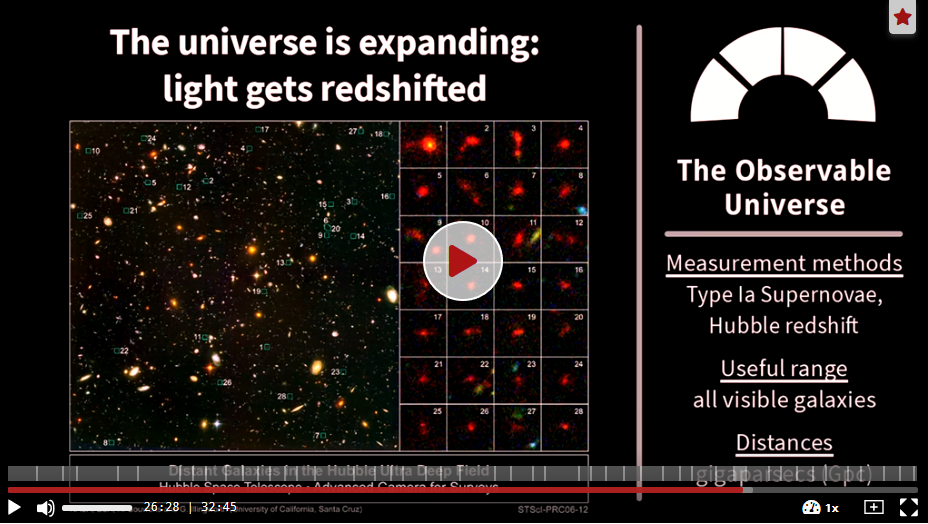
Stefan Schmeja, research assistant at the TIB’s Publication Services and – among other things – responsible for Open Access consultancy, is enthusiastic:
Ingo Keck: Beyond The Camera Panopticon
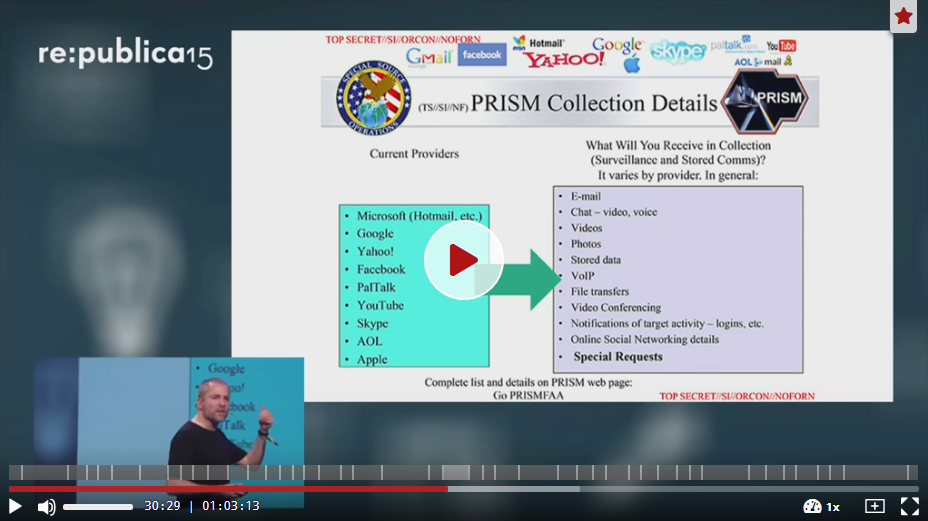
Ingo Keck from the Scientific Data Management Research Group justifies his selection as follows:
Anna-Maria Huesmann: Wie man digital und analog ein radikal-achtsames Leben führen kann (How to live a radically mindful life in digital and analogue)
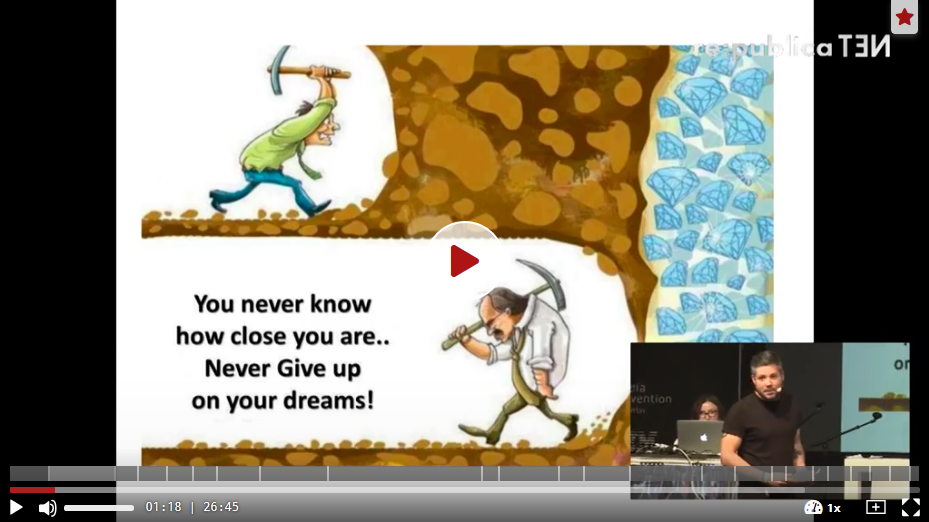
Just another contribution from the conference about the (social) web and digital society. Our subject librarian for educational sciences, sports, theology – Anna Maria Huesmann – summarises her selection in a pointed way:
Elke Stahl / Michael Hohlfeld: Lecture on Science and Creativity
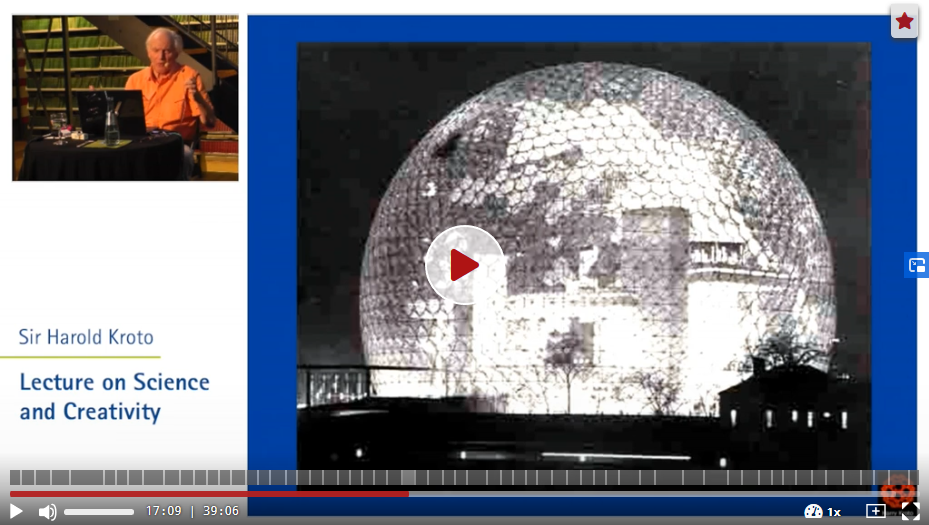
Elke Stahl (Team Windows Support in the IT department) and Michael Hohlfeld (Team Communication) independently favoured the same video. Michael Hohlfeld argues:
Matti Stöhr: Lies, damned lies and scans
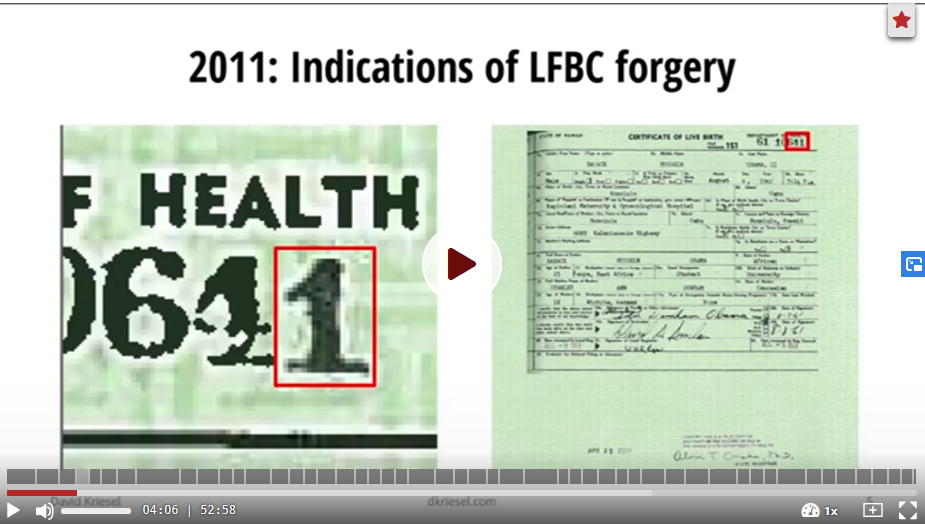
My personal (current) favourite comes from the field of computer science: the data analysis lectures by Bonn-based data scientist David Kriesel are substantiated, instructive and extremely entertaining. He gained greater, also international, fame through the discovery and publication of the „Xerox Bug„. In this lecture at FrOSCon 2015, David Kriesel tells its story.
Join us!
Of course, we invite you to go on an extensive journey in the AV-Portal. Have you found your favourite video(s)? Feel free to share your choice via the comment function, by email (av-portal@tib.eu) or via social media such as Twitter or Instagram by using the hashtag #AVPortal_30k. We look forward to adding your recommendation(s) to the watch list „30.000 Videos in the TIB AV-Portal – Recommendations“.
Continue with the second part of the little expedition
... arbeitet seit Mai 2020 an der TIB mit Schwerpunkt Wissenschaftskommunikation besonders als Community Manager für das TIB AV-Portal. // ... has been working at the TIB since May 2020, specialising in science communication, especially as Community Manager for the TIB AV-Portal.



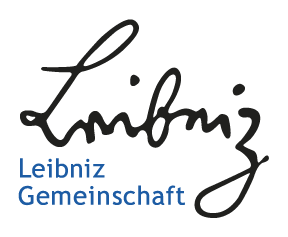
0 Antworten auf “Science in its audiovisual diversity – highlights from 30,000 videos in the TIB AV-Portal. Part 1”